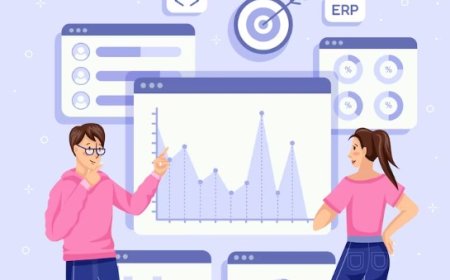Data Science Course Comparison
Compare top Data Science courses with our comprehensive Data Science Course Comparison. Find the best program for your career goals and aspirations

The field of data science is experiencing an unprecedented surge in demand, driven by the ever-increasing importance of data-driven decision-making across industries. As a result, aspiring data scientists are faced with the critical task of selecting an educational path that equips them with the requisite skills and knowledge to thrive in this ever-changing terrain.
1. Diversity of Courses:
The plethora of data science courses available adds complexity to the decision-making process. Traditional university degrees, intensive boot camps, and flexible online certifications present prospective learners with diverse pathways to acquiring data science skills. Each avenue comes with its unique set of advantages and challenges, making it imperative for individuals to discern the best fit based on their learning preferences, time constraints, and career objectives.
2. Quality of Instructors:
The caliber of instructors significantly influences the effectiveness of a data science course. University programs often feature a mix of academic faculty and industry experts, offering a balance between theoretical knowledge and real-world applications. Bootcamps, on the other hand, frequently boast instructors with industry experience, emphasizing practical skills. Online certification programs vary widely in this regard, necessitating careful consideration of the instructor's credentials and relevance to the field.
3. Practical Application:
Data science is inherently practical, requiring individuals to translate theoretical knowledge into tangible solutions. The extent to which a course integrates real-world projects, case studies, and practical applications into its curriculum is a pivotal factor in evaluating its efficacy. While university programs may delve deeply into theoretical concepts, the practical application might be limited. In contrast, boot camps and some online certifications prioritize hands-on experience, preparing graduates for the demands of the industry.
Given the multifaceted nature of data science education, the central question emerges: How do these three prominent data science courses compare in terms of curriculum, instructor quality, and practical application, and which one aligns best with individual career aspirations?
1. Master of Science in Data Science (University Program):
Curriculum:
-
Comprehensive Coverage: University programs offer an extensive curriculum that spans a wide range of topics, including statistical analysis, machine learning, data visualization, and more. This comprehensive coverage provides students with a thorough and well-rounded understanding of the field of data science.
-
Theoretical Foundation: The curriculum of a Master's program is designed to provide a strong theoretical foundation. This ensures that students not only gain practical skills but also acquire a deep understanding of the underlying principles and methodologies that form the backbone of data science.
-
Research Opportunities: One of the distinctive features of university programs is the emphasis on research opportunities. Students have the chance to engage in cutting-edge projects, contribute to the academic community, and stay at the forefront of developments in the field.
Instructor Quality:
-
Blend of Academic and Industry Experts: University programs often boast a diverse faculty, combining academic experts with industry professionals. This blend ensures that students receive a well-balanced education, merging theoretical knowledge with practical insights gained from real-world experiences.
-
Networking Opportunities: Being part of a university community opens doors to valuable networking opportunities. Students can interact with professors, industry professionals, and peers, fostering connections that may lead to internships, collaborative projects, and job opportunities upon graduation.
Practical Application:
-
Research-Based Learning: While the emphasis is on theoretical understanding, university programs often incorporate research-based learning. This approach encourages critical thinking, problem-solving, and the application of theoretical knowledge to practical scenarios.
-
Networking: The university environment provides a platform for networking, allowing students to build connections within the academic and industry spheres. Networking opportunities can lead to internships, collaborative research projects, and a smoother transition into the professional world.
2. Data Science Bootcamp:
Curriculum:
-
Intensive and Practical: Data science boot camps are designed to be intensive and focused, emphasizing practical skills. The curriculum is crafted to provide a hands-on learning experience, allowing students to rapidly acquire the skills needed for immediate application in the workforce.
-
Industry-Relevant Skills: Collaboration with industry partners ensures that the curriculum aligns closely with current industry needs. This industry-centric approach equips graduates with skills directly applicable to the demands of the job market.
-
Condensed Timeframe: Bootcamps offer a condensed timeframe for learning, making them an attractive option for individuals looking to enter the workforce quickly. The focused curriculum ensures that students gain relevant skills efficiently.
Instructor Quality:
-
Industry Experts: Instructors in data science bootcamps often come directly from the industry, bringing real-world experience to the classroom. This ensures that the practical insights gained during the program are directly applicable to the challenges faced in professional settings.
-
Networking Opportunities: Many boot camps prioritize networking by organizing events and offering career services. This proactive approach to networking enhances the chances of students securing job placements and connecting with industry professionals.
Practical Application:
-
Hands-On Projects: A key feature of boot camps is the emphasis on hands-on projects. Students work on real-world scenarios, translating theoretical knowledge into practical solutions. This approach prepares graduates for the immediate challenges of a data science role.
-
Immediate Applicability: The practical skills acquired in a boot camp are geared towards immediate applicability in the job market. Graduates are often well-prepared to contribute to projects and tackle data science tasks from day one in their professional roles.
3. Online Certification Program:
Curriculum:
-
Flexibility: Online certification programs offer flexibility in learning, allowing individuals to set their own pace and schedule. This flexibility is particularly beneficial for those with other commitments, such as work or family responsibilities.
-
Cost-Effective: Generally more affordable than university programs, online certification programs make data science education accessible to a broader audience. The reduced cost is advantageous for individuals seeking quality education without a significant financial burden.
-
Specialized Focus: Some certification programs focus on specific tools or technologies, allowing learners to tailor their education to their specific career goals. This specialized focus can be valuable for those aiming to specialize in a particular aspect of data science.
Instructor Quality:
-
Diverse Instructors: Online programs often bring in instructors from various locations and industries, providing diverse perspectives. This diversity enriches the learning experience by exposing students to different approaches and applications of data science.
-
Flexibility in Instruction: The online format allows for flexibility in instructional methods and delivery. Learners can access a variety of resources, including video lectures, interactive assignments, and virtual labs, catering to different learning styles.
Practical Application:
-
Flexibility in Application: Online certification programs typically allow learners to apply their knowledge to projects that align with their current or desired roles. This flexibility in application ensures that the education is directly relevant to individual career aspirations.
-
Access to Tools and Technologies: Certification programs may focus on specific tools or technologies, providing hands-on experience with industry-relevant tools. This exposure equips graduates with practical skills that are directly applicable in professional settings.
Effective Tips for Decision-Making:
Define Your Goals: Clearly outline your career goals and objectives. Determine whether you are seeking a deep theoretical understanding, rapid practical skills, or a specialized focus on certain tools or technologies.
Research Course Curricula: Thoroughly examine the curricula of the programs you are considering. Ensure that the courses align with your learning preferences and cover the essential skills required in the industry.
Evaluate Instructor Profiles: Investigate the backgrounds and experiences of the instructors. Look for a balance of academic expertise and industry relevance. This ensures a comprehensive learning experience that combines theoretical knowledge with practical insights.
Consider Practical Applications: Given the practical nature of data science, prioritize programs that integrate hands-on projects, real-world case studies, and practical applications into their curriculum.
Assess Networking Opportunities: Consider the networking opportunities provided by each program. University programs often offer a rich environment for networking, while boot camps and online programs may focus on connecting students with industry professionals.
Check Alumni Success Stories: Research the success stories of alumni from each program. Alumni achievements can provide valuable insights into the effectiveness of the courses in facilitating career growth.
Seek Advice from Industry Professionals: Reach out to professionals currently working in the data science field. Their perspectives can offer practical insights and guidance in making an informed decision.
Balance Time and Cost Considerations: Evaluate the time commitment and costs associated with each program. Consider your financial situation and the feasibility of dedicating the required time to the chosen course.
After comparing various data science courses, it is evident that each course has its own unique strengths and weaknesses. It is important for individuals to carefully consider their specific goals and requirements before choosing a course. Whether it's the curriculum, teaching methodology, or industry recognition, there are several factors to consider. Ultimately, the best data science course will be the one that aligns with your personal needs and helps you achieve your career aspirations.




































